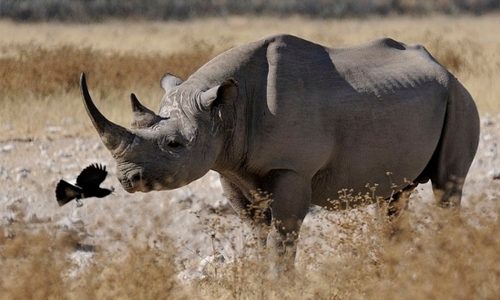A world without the wonders of nature can affect our happiness
Against the spectacular backdrop of the UAE’s Hajar Mountains, I once saw an osprey. The bird of prey was gliding on a warm wind, a snake clenched in its talons – lunch for a hungry brood of hatchlings, I suspected. The scene was unforgettable: the seahawk and the serpent, a poetic snapshot of this nation’s spellbinding biodiversity. Unfortunately, that great wealth of nature is now under threat. A global assessment published last week by the United Nations, suggests that 1 million animal and plant species are at risk of extinction, many within years.
Compiled by 145 expert authors from 50 nations and examining 15,000 scientific and governmental sources, this landmark report is the latest and most comprehensive exploration of our planet’s biodiversity to date. It describes “dead zones” in the world oceans, where nothing lives, and forests that have fallen silent. Because all their insect life has vanished, there is no birdsong. Ominously, the report also suggests that species extinction is accelerating at an alarming rate, with potentially catastrophic consequences for humanity. The report ends with a call for transformative change and the presentation of a framework of far-reaching conservation measures.
Alongside the threats to our physical health and our long-term economic prosperity, however, the world’s decreasing biodiversity also has serious implications for our psychological wellbeing. At the most basic level, the devastation of the natural world evokes a deep sense of sadness for many people. In little more than a decade, the world has witnessed the functional extinction of the West African black rhino, the Japanese river otter, the Caribbean monk seal and many more. In 2018, alone, three bird species vanished from the planet forever. Meanwhile, closer to home, species such as the dugong and the Socotra cormorant are vulnerable.
Now, thanks to the incredible archival capacities of the internet, anyone can run an image search and be reminded of exactly what we have allowed to slip away. Psychologists believe that this sense of avoidable loss can give rise to states of grief, remorse and even depression. We also know that the natural world has a positive impact on our psychological wellbeing, even influencing our ability to tolerate pain. In a now-classic study, published in the journal Science in 1984, post-surgical patients whose hospital windows overlooked trees, rather than a brick wall, required less pain relief and healed quicker. We can also interpret these findings as “less nature equals slower healing and more pain”.
A more recent study examining the psychological impact of nature explored the biodiversity of urban green spaces and their relationship to visitor wellbeing. Published in Biological Letters, this study found that the psychological benefits of green spaces, such as city parks, increased along with the biodiversity of the location. In short: areas with greater species richness – more types of plants, birds and butterflies – were associated with better psychological health among frequent visitors. Another psychological consequence of shrinking biodiversity and climate change is the rise of what some refer to as “eco-anxiety”.
Although not yet recognised as an official psychiatric disorder, the American Psychological Association makes frequent references to the condition in a 2017 report, describing it as “a chronic fear of environmental doom”. The increasing media attention given to environmental issues is a good thing. It raises eco-consciousness and, hopefully, leads to meaningful change. However, for some, concerns about the environment can escalate into extreme emotional distress. This can take the form of excessive guilt about their own ecological transgressions, intense anger about the actions of others or a persistent and unhealthy worry about the prospect of environmental catastrophe.
Debilitating anxiety, however, rarely leads to decisive action – and action is precisely what is needed. In a highly specialised laboratory, buried deep within the Abu Dhabi campus of Zayed University, the marine biologist Henrik Stahl works tirelessly on a project aimed at helping to replenish the world’s rapidly vanishing coral reefs. He often jokes with me about going back to check on “the babies”, which is how he refers to the lab-grown corals he is nurturing to maturity.
The plan is to, eventually, release them back into their natural habitat, in order to replenish the Arabian Gulf’s depleted reefs. From scientific research to lifestyle choices and governmental policy, we need to do much more to prevent habitat and species loss. The vital connection between nature and our personal wellbeing should be reason enough. After all, can you imagine ever being happy in a world without birdsong?
Related Posts

